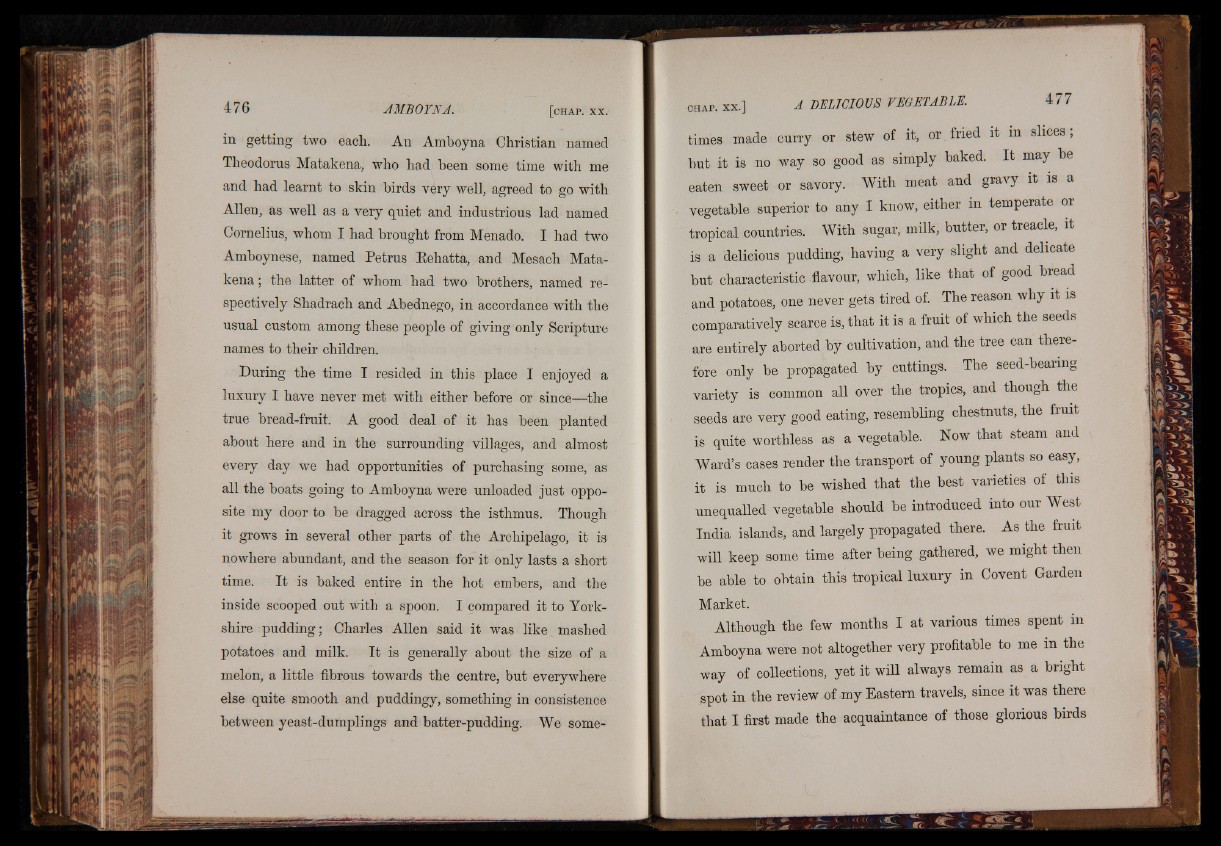
in getting two each. An Amboyna Christian named
Theodorus Matakena, who had been some time with me
and had learnt to skin birds very well, agreed to go with
Allen, as well as a very quiet and industrious lad named
Cornelius, whom I had brought from Menado. I had two
Amboynese, named Petrus Eehatta, and Mesach Matakena
; the latter of whom had two brothers, named respectively
Shadrach and Abednego, in accordance with the
usual custom among these people of giving only Scripture
names to their children.
During the time I resided in this place I enjoyed a
luxury I have never met with either before or since—the
true bread-fruit. A good deal of it has been planted
about here and in the surrounding villages, and almost
every day we had opportunities of purchasing some, as
all the boats going to Amboyna were unloaded just opposite
my door to be dragged across the isthmus. Though
it grows in several other parts of the Archipelago, it is
nowhere abundant, and the season for it only lasts a short
time. It is baked entire in the hot embers, and the
inside scooped out with a spoon. I compared it to Yorkshire
pudding; Charles Allen said it was like mashed
potatoes and milk. It is generally about the size of a
melon, a little fibrous towards the centre, but everywhere
else quite smooth and puddingy, something in consistence
between yeast-dumplings and batter-pudding. We sometimes
made curry or stew of it, or fried it in slices ,
but it is no way so good as simply baked. It may be
eaten sweet or savory. With meat and gravy it is a
vegetable superior to any I know, either in temperate or
tropical countries. With sugar, milk, butter, or treacle, it
is a delicious pudding, having a very slight and delicate
but characteristic -flavour, which, like that of good bread
and potatoes, one never gets tired of. The reason why it is
comparatively scarce is, that it is a fruit of which the seeds
are entirely aborted by cultivation, and the tree can therefore
only be propagated by cuttings. The seed-bearing
variety is common all over the tropics, and though the
seeds are very good eating, resembling chestnuts, the fruit
is quite worthless as a vegetable. Now that steam and
Ward’s cases render the transport of young plants so easy,
it is much to be wished that the best varieties of this
unequalled vegetable should be introduced into our West
India islands, and largely propagated there. As the fruit
will keep some time after being gathered, we might then
be able to obtain this tropical luxury in Covent Garden
Market.
Although the few months I at various times spent in
Amboyna were not altogether very profitable to me in the
way of collections, yet it will always remain as a bright
spot in the review of my Eastern travels, since it was there
that I first made the acquaintance of those glorious birds